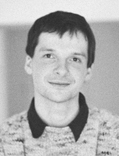Poland
 By Piotr Wasylczyk
By Piotr WasylczykIn Poland students applying for a PhD degree course must hold an equivalent of the MSc degree (magister) which is nominally awarded after 5 years of study (thus around the age of 24). Those with a BSc (licencjat) must undertake an additional 2-year-long MSc course first.
Doctoral degrees in Poland may be received from either a university or a research institute. There are a number of universities with physics departments offering PhD studies: Warsaw (also the Technical Univeristy), Cracow (Jagiellonian Univ.), Poznan (A. Mickiewicz Univ.), Torun (M. Kopernik Univ.) and Gdansk being the biggest and most popular. The other possibility is to join one of the research institutes of the Polish Academy of Sciences (PAN) – Institute of Physics, Institute of High Pressure Research, Institute of Low Temperatures and about a dozen more scattered around the country. The most visible difference between the two paths from a potential candidate's point of view are: the stipends offered (typically lower at the universities) and the teaching duties (practically nonexistent in PAN institutes). In some places one may expect some kind of entrance examinations or an interview. A peculiar phenomenon is that there is practically no flow of students between universities (i.e., most of them undertake PhD studies in the same place where they received their MSc degree).
Once admitted, a PhD student joins a research group (very often chosen in advance as a group leader's support and declaration of interest, in cooperation with the candidate, may be advantageous) and is introduced in its activities. Throughout the whole period of the PhD studies he/she can chose the classes and lectures from either his/her home institution or another university/institute according to his/her interests and needs. The teaching duties consist of teaching problem solving classes or supervising undergraduate labs.
Nominally, the PhD thesis should be presented after 4 years of study but this rarely happens, especially in experimental physics. In most universities it is possible to extend the course into the fifth year, but further delay is in principle not accepted.
Most PhD recipients who want to continue their scientific career after receiving the title go abroad for one or more post-docs. The canonical path to a professorship after receiving the PhD involves being employed at a university or an institute as an equivalent of the research associate (adiunkt), receiving the habilitation (typically after 6-10 years) and finally getting the permanent post in an open competition. The possibility of finding employment in high-tech industry in Poland is very faint.
There are several traditionally strong fields of physics research in which there are a number of groups that are performing cutting-edge research: theoretical physics (gravitation, elementary particles, quantum optics, BEC theory, mathematical methods in physics), experimental particle physics (at CERN), some areas of solid state studies. Among the new enterprises, the National Laboratory for Atomic, Molecular and Optical Physics was opened in 2003 in Torun with three groups at the moment working on quantum optics, quantum information processing with trapped ions and Bose-Einstein condensation.
Polish Academy of Science
www.pan.pl
Institute of Physics
www.ifpan.edu.pl
Ministry of Scientific Research and Information Technology
www.mnii.gov.pl
Physics departments at the universities:
Warsaw www.fuw.edu.plWarsaw (Technical University) www.if.pw.edu.pl
Cracow www.fais.uj.edu.pl
Poznan www.fizyka.amu.edu.pl
Torun www.phys.uni.torun.pl
Gdansk www.matfiz.ug.gda.pl
 Piotr Wasylczyk received his MsC in experimental physics and PhD in optics from Warsaw University. He is currently working as a research associate on nonlinear optics in the Ultrafast Phenomena Lab in the Institute of Experimental Physics of Warsaw University.
Piotr Wasylczyk received his MsC in experimental physics and PhD in optics from Warsaw University. He is currently working as a research associate on nonlinear optics in the Ultrafast Phenomena Lab in the Institute of Experimental Physics of Warsaw University.